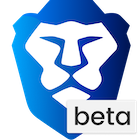

In addition, users can pick from 15 different curated sources and customize their stream further by adding or removing them.īrave supports a decentralized web by becoming the first browser to offer native integration with a peer-to-peer networking protocol that fundamentally changes how the internet works. īrave targets to index more of the web, respecting user privacy and finding a way to give publishers proper content attribution.īrave Today allows users to subscribe to RSS anonymously feeds of their favorite news outlets and stay up to date with all the latest news in a single place. Google commanded a whopping 92.2% market share for global search engines in May 2021, with Bing coming in second at 2.27%, according to Statcounter. Brave as a Challenger to Googleīrave’s privacy-focused browser presently has 32 million monthly active users after hitting 25 million in February however, that is not much compared to Google’s dominance over browsing with its Chrome browser and web search. But it faces an uphill battle against the tech giant, which accounts for more than 90% of the market. The platform aims to surpass the likes of Google, which harvests personal data and browsing habits while serving up targeted ads and tailored search results. The company is putting Brave Search as a non-tracking alternative to Google Search on Chrome and mobile. The first pro- privacy- search engine, Brave, has been in preview and testing mode for a couple of months.Įarlier this year, Brave announced the acquisition of Tailcat, an open search engine, to be the basis of its forthcoming product Brave Search. Brave announced on 22nd June that it had launched the crypto-powered Brave Search beta built into its browser, offering users with the first independent privacy search/browser alternative to big tech.


 0 kommentar(er)
0 kommentar(er)
